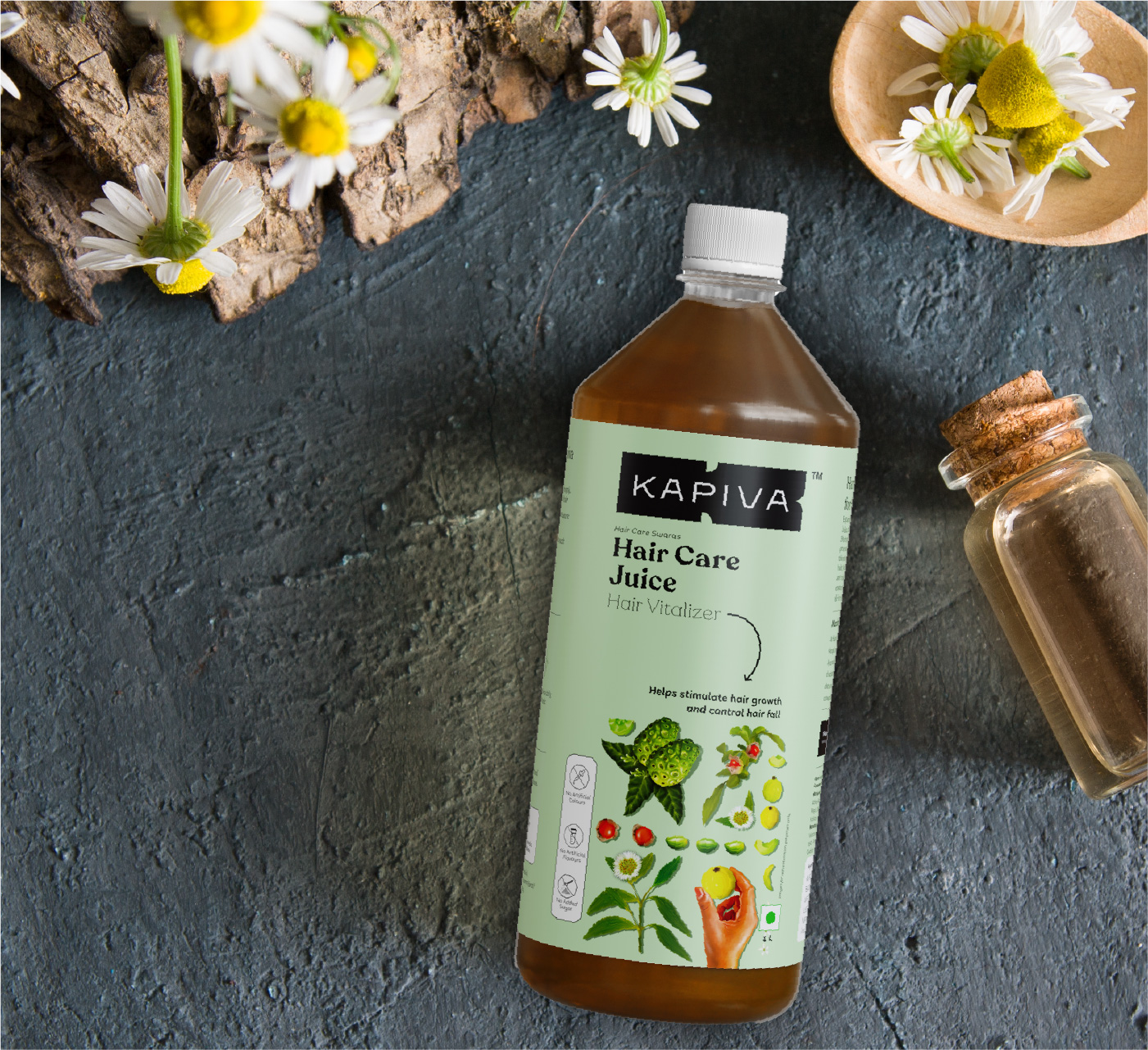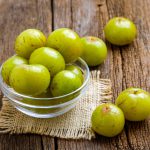Ashwagandha in Sanskrit means “smell of the horse” to correlate it with the strength of…
Read MoreMonsoon’s around the corner, and while it’s a sight for sore eyes, it has somewhat troublesome aftermath – frizzy hair, itchy scalp, dandruff, hair fall, and the list goes on.
Hair specialists claim that we experience double the hair fall in rainy season than in any other season. This premature hair fall is due to the change in weather and high humidity that the monsoon drags along. Your hair starts acting out when it can’t handle that humidity level. Whether you have thick or scanty hair, the humidity of the monsoon season takes a toll on all types of hair. To ensure that hair concerns don’t restrict you from enjoying the season, here are eight monsoon hair care tips to help you dance off your hair issues in the rain!
Even if you already have a hair care routine, you may need to alter it to combat the monsoon humidity. A crucial antidote to hair fall in rainy season damage is keeping your scalp hygienic. This doesn’t mean doubling your shampooing time; simply optimizing your hair care routine. Oil your hair more often since it works as a protective layer against the harmful properties of humidity in the air. With regular oiling, you strengthen the roots of your hair and curb the seasonal shedding. A traditional oiling method you must try is to massage your scalp and hair with lukewarm oil. Oiling reduces scalp itchiness, inflammation, and hair fall.
Let’s explore some valuable hair care tips to prevent hair fall in rainy season:
If you think shampooing repeatedly can save you from the hair fall in rainy season, you’re incorrect. Shampoos only make your scalp and hair drier and irritable. It is advisable to wash your hair not more than three times a week. And even when you do so, ensure that you’re using a mild shampoo. Utilizing chemically processed hair shampoos can be extremely harsh on your scalp and leave it dehydrated. Thus, ensure that you use organic or ayurvedic shampoos during this time of the year.
Your hair can’t get all the essential nutrition from minor applicants. You must nourish your hair by eating healthy. A piece of all-season advice for radiant, healthy hair is to add nuts, herbs, and superfoods for hair enhancement into your daily diet regimen. Kick-start your day with a nourishing bowl of nuts like almonds, walnuts, cashews, and pecans. Have vitamin-rich fruits like avocados that protect the scalp from oxidative stress by neutralizing free radicals.
Organic seeds like sunflower seeds and flax seeds significantly increase hair follicles and support hair growth. Try consuming vegetables that contain fatty acids since such foods hydrate your scalp. If you lead a fast-paced life and need an easy-to-consume alternative, choose Kapiva’s hair care juice. It provides you with the hair-nourishing values of ayurvedic herbs like Amla, Bhringraj, Ashwagandha, and Noni.

Harness the soothing nourishment of natural ingredients like lemons, coconut, yogurt, honey, etc. You can find several DIY haircare masks for the perfect hair nourishment and rejuvenation. Here are a few hair care mask recipes to start your monsoon hair care routine.
The antioxidant properties, minerals, and vitamins present in this mix prevent the harmful effects of the rain on your hair. If you don’t have commercially available avocado oil, you can extract and use raw avocado oil from regular avocados. Mix this extract with 1 or 2 teaspoons of wild honey and coconut oil. Apply this mix to the scalp and wash off after an hour or two.
Eggs contain several nourishing properties for your hair. You can create a quick hair mask by mixing yoghurt with eggs and a teaspoon of lemon. Lemon masks the foul smell of the mix and provides your hair with the necessary vitamins.
Sugar is a natural exfoliant that decreases dandruff and scalp irritation, while olive oil provides healthy fats and emollients to your scalp for moisturizing and hydrating benefits.
The market is saturated with a versatile variety of hair care supplements. However, you must be cautious when consuming any health-related products. An abundance of acids, steroids, and chemicals can do more harm than good. It is imperative to understand the composition of a hair supplement before consumption. Try choosing organic superfoods and supplements for hair care since these have no side effects and are devoid of artificial ingredients. You do not want to hamper your health for hair enhancement; thus, consult a nutritionist for the right hair care supplement and dosage.
When drastic weather changes damage your hair, you must not add to it by heating processes. In the monsoon season, try avoiding the use of hair straightening machines, hair curlers, and even hair dryers. Let your hair dry naturally post-wash since these heating tools contribute to hair damage.
In the monsoon season, hair maintenance can cause a lot of hassle. If you’d like a more straightforward way out, you can always have shoulder-length hair that’s easy to maintain. Every time you get a trim, you get rid of split-ends and damaged hair. Thus, don’t be hesitant to give yourself a nice trim once in a while.
Stress adds significantly to hair fall and weakening. Despite the air-tight schedules and hectic routines, you must work on stress management. Take breathers more often and treat yourself to herbal teas that provide relief from stress and anxiety. Another way of keeping stress at bay is by drinking lots of water. You catalyse hair growth and steer clear of several health and hair concerns by staying hydrated.
After discussing them with your nutritionist or healthcare practitioner, choose the right hair supplements. There is no solid medical evidence supporting claims like improved hair growth, reduced hair fall, and shiny hair. Hair supplements that target specific nutritional deficiencies can help stall hair fall and other issues like dandruff.
The rainy season can harm your hair in more ways than one. To curb the damage that monsoon drags along, you must follow practical monsoon hair care tips. Furthermore, you must maintain a healthy lifestyle that includes regular exercising, a nutrition-rich diet regimen, and an optimistic approach to overall mental and physical well-being. By following the above-mentioned monsoon hair care tips, you and your hair can enjoy the rain without worries.
We generally experience increased hair fall during rainy season due to weather changes and high humidity. Whether you have thick or scanty hair, the humidity of the monsoon season makes your scalp oily. This humidity increases your hair wash routines which causes dryness, hair fall, and dandruff during monsoons.
Avoid excessive shampooing and hair baths. Drink a lot of water, use oil and increase the intake of seeds, nuts, herbs, and other foods that provide nutrients and strength to the hair follicles and prevent scalp drying. Use homemade hair masks with nourishing herbs to mildly cleanse your scalp. Keep your hair short.
Use a mild shampoo, avoid excessive hair baths, eat nutrient-dense foods (nuts, seeds, herbs), stay hydrated, choose organic hair supplements, trim your hair, and avoid stress to prevent monsoon hair fall.
There is no solid medical evidence supporting claims that hair supplements improve hair growth, reduce hair fall and make your hair strong and shiny. Hair supplements containing certain vitamins that target specific nutritional deficiencies can help stall hair fall and other issues like dandruff.
Hair supplements are safe for everyone. Avoid overdosing or overusing these supplements as metal toxicity can cause long-term health issues. Some supplements could alter the lab results of thyroid, troponin, or Vitamin D. Consult with your physician before starting on these supplements. Other mild symptoms include digestive discomfort and skin rashes.


We are a team of food scientists and Ayurveda experts at Kapiva. Our mission is to raise awareness and educate people on ancient principles and herbs found in traditional texts. We work together to develop the most comprehensive content on Ayurveda which is grounded in peer-reviewed, scientific research.

Ashwagandha in Sanskrit means “smell of the horse” to correlate it with the strength of…
Read More
Pimples - we’ve all had them and we all hate them. And if you’ve ever…
Read More
Don’t all of us want healthy glowing skin? And while there is a ton of…
Read More
Most of us have experienced skin irritations at some point or the other. When the…
Read More